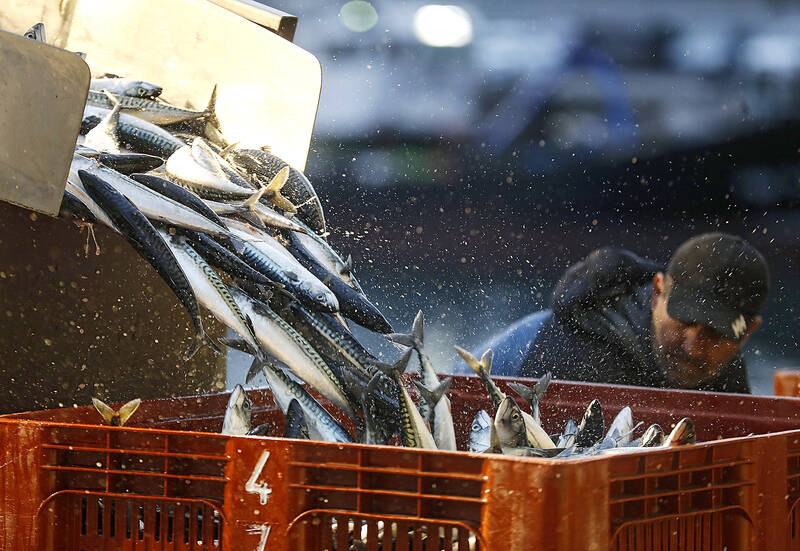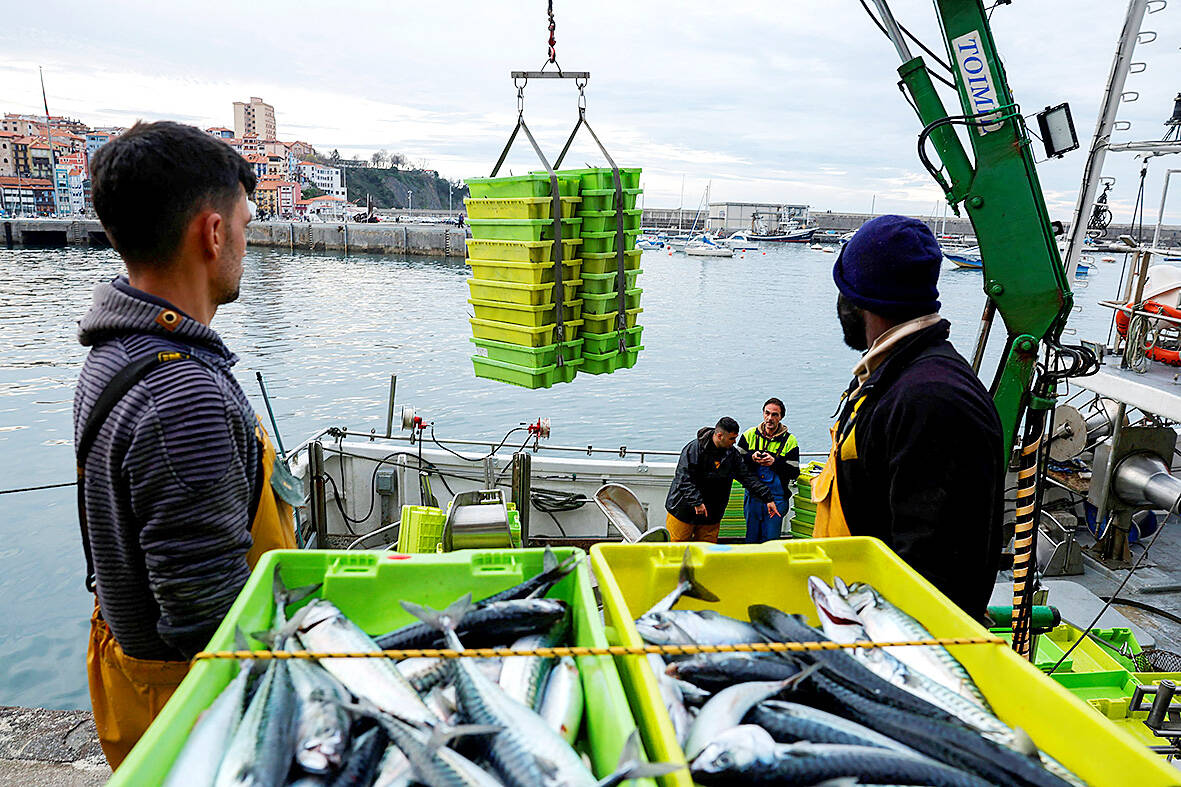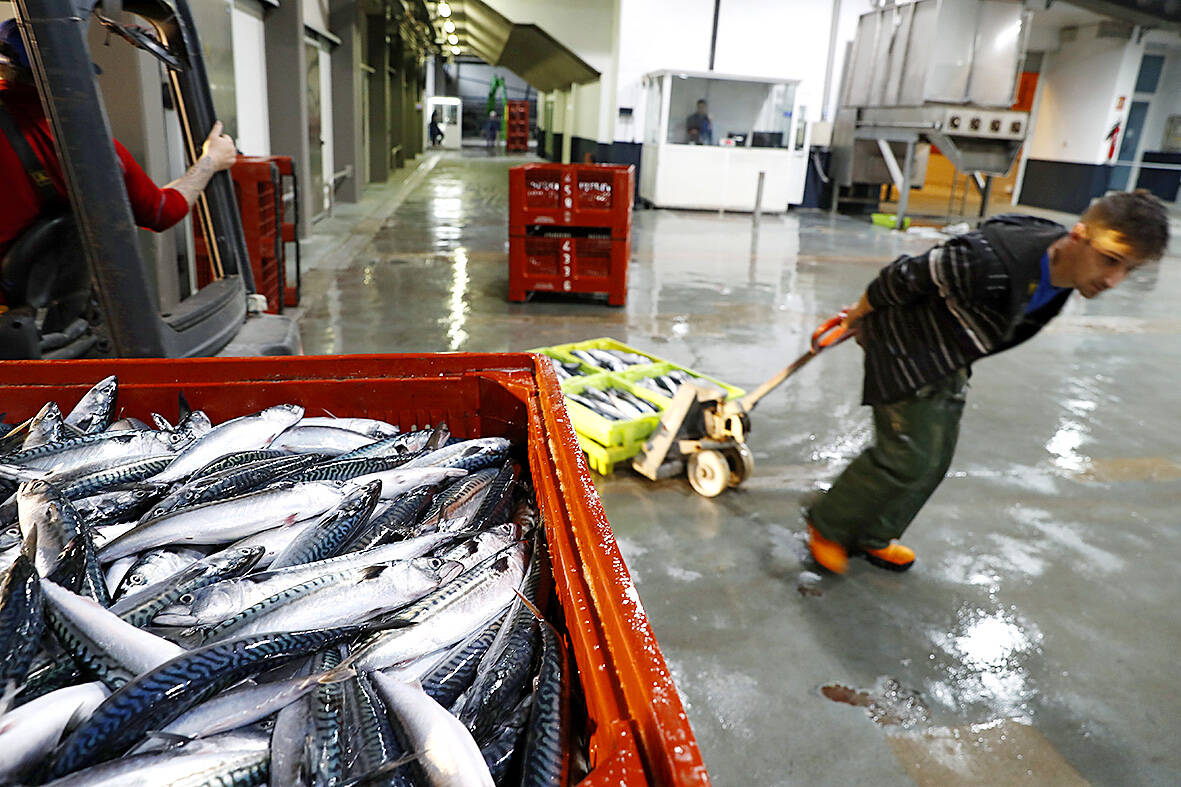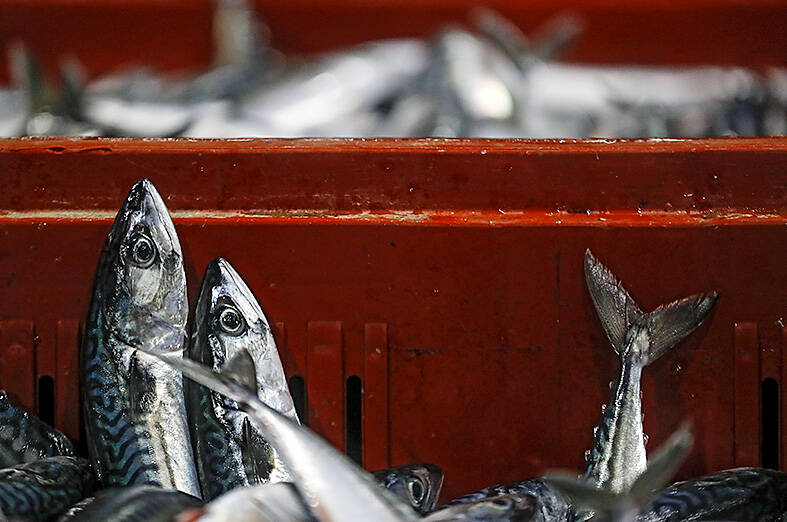Mackerel populations are declining because of overfishing and the fish is no longer a sustainable food choice, the Marine Conservation Society has said in its new UK guide to sustainable seafood.
North-east Atlantic mackerel has been considered an environmentally-friendly choice for consumers since before 2011, but the species has become increasingly scarce and now experts are calling for more regulation over how its caught.
The MCS reviews 186 environmental ratings for seafood, with 20 species moving to the “fish to avoid” list in this year’s spring update to its Good Fish Guide. The charity is calling on UK governments to better manage all stocks and collect more data, with monitoring involving cameras.

Photo: EPA-EFE
Charlotte Coombes, Good Fish Guide manager at the MCS, said: “The north-east Atlantic mackerel population has been declining since 2015, which is concerning. Fishing communities and wildlife depend on this species, but continued overfishing is putting both at risk.”
Mackerel is caught by various states, including Norway, Iceland, the UK, and countries in the EU. Currently, these countries are not working together to tackle overfishing of the species, the charity said. Coombes said countries need to agree on quotas “to protect stocks.”
In October 2021, the main fishing states again agreed that total mackerel catches in 2022 should not exceed the scientific advice (794,920 tonnes), but not how the catches should be divided. The combined catch limits set by all countries for 2022 totaled 1,131,416 tonnes, exceeding the advice by 42 percent.

Photo: Reuters
During March 2023, countries met to decide how to divide the next set of quotas. However, nothing was decided and talks are continuing.
The UK takes about 17 percent of the total mackerel catch, mostly from Scottish boats. In 2021, more than 220,000 tonnes of mackerel were caught — 32 percent of the total UK catch — worth about £240 million (US$300 million).
Mackerel is important prey for whales, dolphins, and tuna, the charity said, adding that removing too much of this species could have wider environmental effects.

Photo: EPA-EFE
Only 15 ratings have joined the green-rated “best choice” list this spring. The MCS use a traffic light system — green, red and amber — to show where fish rank, with mackerel moving to the amber list. An amber rating means that improvements are needed, in this case, better management to end overfishing of the stock.
Despite the bad news for international fishing, mackerel caught by hand line in south-west England remains green-rated. This is a low-impact way of fishing, and catches are strictly controlled. There are also protections in place for juvenile mackerel to make sure they can reproduce before they are caught.
Among the ratings that did not change were European eel and Celtic cod, which stay on the red-rated “fish to avoid” list.

Photo: EPA-EFE
Jack Clarke, sustainable seafood advocate at the MCS, said: “Eel is still appearing on menus across the country, despite being more endangered than the Bengal tiger. Populations have declined by as much as 95 percent in the past decade and recent scientific advice couldn’t be clearer — it’s time to stop eating eel. It’s the most trafficked animal on the planet, with an illegal eel trade estimated to be worth £22.5 billion every year.”
Celtic cod is often caught by boats catching haddock and whiting, as they are often found together in the marine environment.
A spokesperson for the Department for Environment, Food and Rural Affairs said: “The UK is working intensively with its partners to agree a range of management measures designed to improve the long-term sustainability of mackerel stock, in addition to a new quota sharing arrangement.
“We will continue to work with those partners, in consultation with stakeholders, to establish the most effective range of measures to ensure the long-term health of the stock.”

This is the year that the demographic crisis will begin to impact people’s lives. This will create pressures on treatment and hiring of foreigners. Regardless of whatever technological breakthroughs happen, the real value will come from digesting and productively applying existing technologies in new and creative ways. INTRODUCING BASIC SERVICES BREAKDOWNS At some point soon, we will begin to witness a breakdown in basic services. Initially, it will be limited and sporadic, but the frequency and newsworthiness of the incidents will only continue to accelerate dramatically in the coming years. Here in central Taiwan, many basic services are severely understaffed, and

Jan. 5 to Jan. 11 Of the more than 3,000km of sugar railway that once criss-crossed central and southern Taiwan, just 16.1km remain in operation today. By the time Dafydd Fell began photographing the network in earnest in 1994, it was already well past its heyday. The system had been significantly cut back, leaving behind abandoned stations, rusting rolling stock and crumbling facilities. This reduction continued during the five years of his documentation, adding urgency to his task. As passenger services had already ceased by then, Fell had to wait for the sugarcane harvest season each year, which typically ran from

It is a soulful folk song, filled with feeling and history: A love-stricken young man tells God about his hopes and dreams of happiness. Generations of Uighurs, the Turkic ethnic minority in China’s Xinjiang region, have played it at parties and weddings. But today, if they download it, play it or share it online, they risk ending up in prison. Besh pede, a popular Uighur folk ballad, is among dozens of Uighur-language songs that have been deemed “problematic” by Xinjiang authorities, according to a recording of a meeting held by police and other local officials in the historic city of Kashgar in

It’s a good thing that 2025 is over. Yes, I fully expect we will look back on the year with nostalgia, once we have experienced this year and 2027. Traditionally at New Years much discourse is devoted to discussing what happened the previous year. Let’s have a look at what didn’t happen. Many bad things did not happen. The People’s Republic of China (PRC) did not attack Taiwan. We didn’t have a massive, destructive earthquake or drought. We didn’t have a major human pandemic. No widespread unemployment or other destructive social events. Nothing serious was done about Taiwan’s swelling birth rate catastrophe.